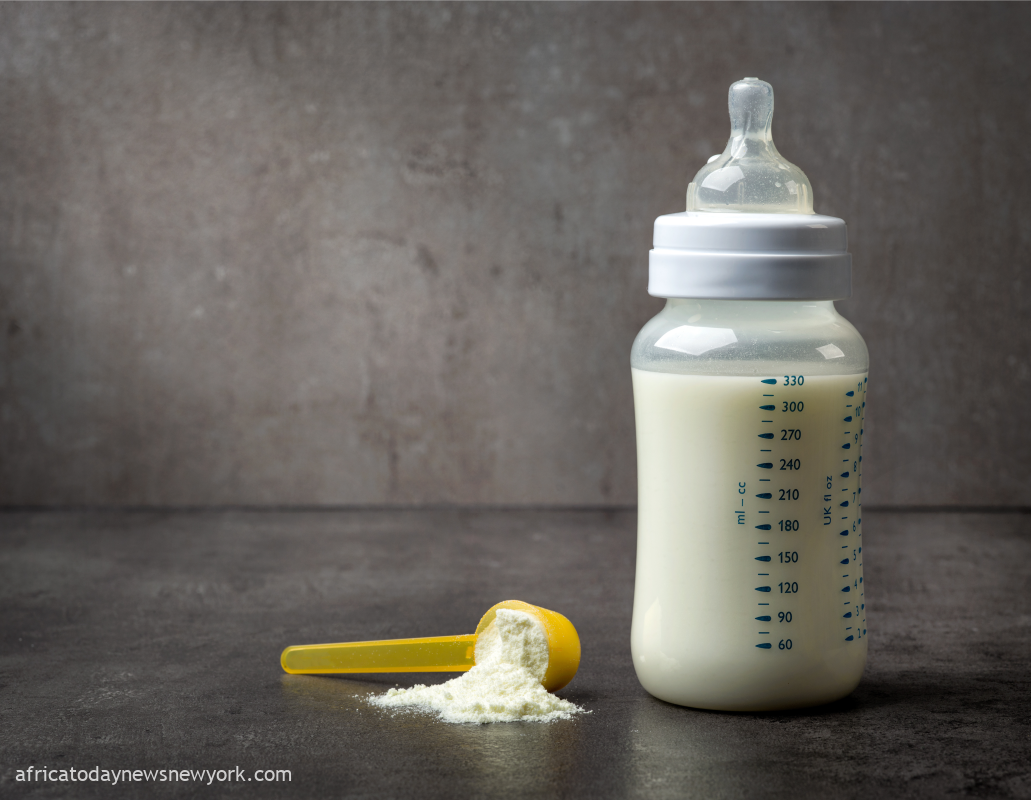According to the World Health Organization, only 29% of mothers in Africa exclusively breastfeed. The use of formula in Africa has been linked to higher rates of child mortality. Despite this, a recent study by Bruce German, a professor of food science at the University of California, found that there were more scientific papers published on wine than on milk. And sadly, a greater fraction of milk-related research inclines towards lactation in cows than in humans.
Breastfeeding has been a topic of debate for centuries. Unfortunately, the politicizing of issues related to infant nutrition has only fueled capitalist motives of formula companies. Some of the earliest studies which threw light on the dangers of dependence on formula was Dr. Herman N. Bundesen’s study in 1937 which revealed that “Out of every 10 children who die in the first year of birth, 8 were bottle fed —not breast fed.”
Centuries later, the working mother’s easiest compromise is still formula as there are often little to no institutional supports to favor breastfeeding. Mothers have to make the difficult choice to fit back into the corporate space or due to health issues resulting in insufficient milk production. Dr. Leila Strickland, co-founder of Biomilq was up against these challenges as a first time mom and decided to pull in research and technology to produce human milk outside a woman’s body.
Dr. Strickland and her team are using mammary biotechnology to “empower parents with a new option for supplemental feeding— one that is 100% human and cultivated under safe conditions using a first-of-its-kind technology.” Inspired by the science of cell culturing employed in the development of lab-grown meat, she and her team are just a couple of years away from releasing a disruptive infant nutrition product known as biomilq.
Read Also: How Will Gene-Edited Foods Affect Food Security In Africa?
Biomilq is an ‘artificial’ breast milk product that has been making headlines. The product is made by using cell-culturing technology that mimics the composition of human breast milk. According to the biomilq team it contains much of the nutrition of breast milk with a potential to almost adequately nourish infants. While some people might view this as a welcome alternative, others are concerned about its long-term effect and impact on existing inequalities.
In recent years, there have been situations where formula scarcity has been a real issue in the U.S and other parts of the world. For instance, in Venezuela, economic instability has led to formula shortages, and mothers have had to resort to other sources of milk for their babies. In other parts of the world, such as war-torn countries, natural disasters, or pandemics, access to formula can also be challenging.
The debate over child nutrition has a long history. In the past, wet nurses were often hired to breastfeed infants, especially among the wealthy. However, this led to historical oppression, where women from lower socioeconomic backgrounds were often forced to become wet nurses, separating them from their own children. The development of formula in the early 20th century changed this dynamic, allowing mothers to feed their babies without the need for a wet nurse.
While breastfeeding is widely recognized as the best source of nutrition for infants, there are situations where women or parents are unable to breastfeed. Some of the reasons could be medical issues, such as insufficient milk supply, or certain medications that are not compatible with breastfeeding. Additionally, some mothers might not have the support or resources to breastfeed, such as access to lactation consultants or time off work.
According to the World Health Organization, only 41% of infants under six months old are exclusively breastfed worldwide. In Africa, the rate is even lower, with only 29% of mothers exclusively breastfeeding. This is despite the numerous benefits of breastfeeding, such as reducing the risk of infections and allergies in infants.
Interestingly, a recent study found that there are more scientific papers published on wine than on milk. In 2020, there were 194,000 papers published on wine, compared to only 168,000 on milk. This is despite the fact that milk is a crucial source of nutrition for infants and children, and its importance should not be overlooked.
However, breastfeeding can come with its own set of challenges, such as sore nipples and mastitis, which can be painful and uncomfortable for mothers. Additionally, there are social issues associated with breastfeeding in public, such as stigma and judgment from others.
While formula can be a convenient alternative to breastfeeding, it comes with its own set of risks. In Africa, for example, the use of formula has been linked to higher rates of child mortality. This is because formula requires access to clean water and proper sanitation, which may not be readily available in certain areas. Moreover, formula can be expensive, putting a strain on families’ finances.
In light of these challenges, Biomilq’s artificial breast milk product might seem like a promising alternative. However, there are concerns about the long-term effects of such a product. For instance, what are the implications of using cell-cultured technology to produce breast milk? How will this impact the relationship between mothers and their babies? And will this further exacerbate existing inequalities, where only certain individuals or populations can afford such a product?
While the development of Biomilq aims to be the next best alternative after breast milk, it is important to bear in mind that breastfeeding remains the best source of nutrition for infants, and efforts should be made to encourage mothers who choose to breastfeed. At the same time, we must recognize the challenges that come with breastfeeding and work towards creating a more supportive environment for nursing mothers.
Ehi Ogwiji is a storyteller and science writer who advocates for a science-literate Africa. She aspires to be a science development communicator and leader of important conversations around gender imbalances in STEMM (Science, Technology, Engineering, Mathematics, Medicine) in Africa and around the world. She writes from Abuja, Nigeria. Connect with her on social media @ogwijiehi.

